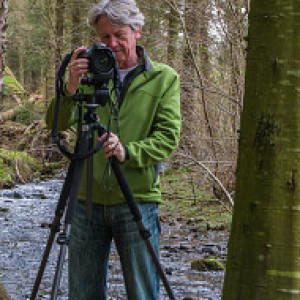A Hero
If ever there was someone who met the definition of a hero, it must be Robert the Bruce, depicted here in Pilkington-Jackson's bronze statue of 1964 at Bannockburn, the site of Bruce's best-known and most significant victory.
Bruce lived from 1274 till 1329, and was crowned as King of Scotland at Scone in 1306. He remained King until his death. There just isn't room here to recount Bruce's many adventures, victories and some defeats.
I took this picture on the morning of June 24th 2014, 700 years from the second day of the Battle of Bannockburn. It would be difficult to overstate the historical and cultural significance of Bruce's victory over the English at Bannockburn. It was followed by the Wars of Independence which led to Scotland being declared an independent nation.
Nor should we underestimate the significance of his victory in the story of warfare. Outnumbered by more than three to one, it was Bruce's adaptation of the technology available to him, particularly the layered long spears of the schiltron, which the English cavalry could not penetrate, and his knowledge of the terrain at Bannockburn, which he exploited by digging masses of relatively small pits in which the English horses fell and broke their legs. Bruce, and he had good advisors around him, was no one's fool, and his personal bravery in killing the English knight de Bohun, who had confidently charged him with a lance, only to be killed by a single blow from Bruce's hand-axe, was a symbolic single event on the first day that did much to encourage his relatively small army against apparently overwhelming odds.
The myths around Bruce are legend, but they don't detract from the fact that he was one of the greatest kings, and greatest heroes, in Scotland's history. I wonder what he would have made of the politics of 2014, 700 years after Bannockburn.

Comments
Sign in or get an account to comment.


